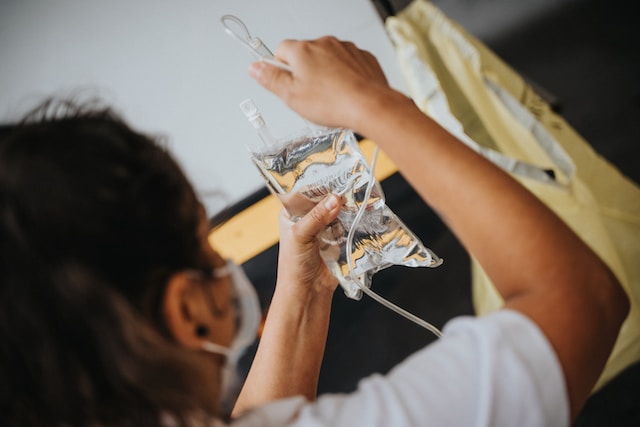The global population is not just growing, it is aging too. By 2050, people over the age of 65 are expected to make up 1.5 billion of the population worldwide, double than what it was in 2019. This development could have serious, even catastrophic economic consequences. However, as the global population ages, the economy will have to adapt, and a significant part of that adaptation will be providing products and services that the elderly need.
But what if there was a way to stop the symptoms of aging? Advances in biotechnology could yield just that. The longevity industry, which is relatively new, could help address these problems, providing technology that could increase our lifespan, improve our quality of life at any age, thus reducing the stress on the taxpayer and providing investors with great returns.
The basis of the longevity industry
The longevity industry is, by nature, one of the most complex industries in existence. The industry aims to provide solutions to the many problems that an aging population faces. Thus, it is at an intersection of medicine, cosmetics, high-tech and IT industries. It includes every product or technology that helps extend healthy life expectancy and lead a more fulfilled life at an advanced age. However, can it go so far as to promise eternal life? Is this a realistic prospect? Are we really about to discover the technology that promises to slow or even reverse aging, or extend human life indefinitely?
Research in aging has made significant advances over the past decade. Scientists now know that aging is not just a random process, but that it is regulated by the genes. That means that if we can identify the right genes, we could significantly reduce the symptoms of aging, perhaps even reverse them entirely. And scientists have been able to do just that; not in humans as yet, but in worms. Scientists have found a gene that causes rapid aging in transparent roundworms after their sexual maturity. Deactivating that gene produced worms that are younger at a molecular level.
Other researchers were able to slow the effects of aging in mice by injecting older mice with blood plasma from young mice. The reason behind the anti-aging effect was the protein GDF11, which is identical in both mice and humans. Hence, the ‘big players’ are taking these developments very seriously. The firm Unity Biotechnology, backed by Amazon CEO Jeff Bezos, is developing a drug called “senolytics”, which eliminate old cells that no longer replicate. Testing on mice showed that this could delay diseases associated with old age.
Alphabet, Google’s parent company, also runs a biotech company called Calico. In 2018, Calico issued a statement saying that it was researching naked mole rats. These subterranean rodents are remarkable as, unlike any other mammal, they are not more likely to die as they age. Therefore, the industry shows great promise for revolutionary technological breakthroughs.

Why invest in the longevity industry?
Populations in wealthy, industrialized countries are aging fairly rapidly. The percentage of people aged 65 or over in OECD countries is projected to rise to 28%. The trend will be even more pronounced in countries like Japan, Korea, but also Spain, Greece and Portugal, where the proportion of that age group will reach 40%. Rapid population aging will also occur in China, the second largest economy in the world, reaching just under 28% in 2050. In the US, that figure will reach 83.7 million in 2050, up by more than 30 million from 2020. Meanwhile the proportion of Americans over the age of 50 will soar to 41%.
An aging population does not bode well for the country’s public finances. Governments are going to look for solutions to their pressing fiscal problems. However, the demand will not only come from governments. As older people become a large proportion of the population, more of the national income will be spent on medical expenses and products that decrease the symptoms of aging.
Americans over the age of 50 account for $8.3 trillion of spending and related economic activity per year. Their contribution to the US GDP, which is now 40%, will triple to $28.2 trillion by 2050. Currently, the botulinum toxin market (Botox) is valued at $4.9 billion, while the erectile drugs market is valued at $4.4 billion. As the percentage of people that fall into the age group that uses these products increases, so will the revenues of these industries.
Therefore, this means that there will be a vast and lucrative market for services, innovations and new products in the health sector. Progress has already been made with technological devices, biotechnology, care services and pharmaceuticals. Japan, for example, has been innovative in this field with the development of “carebots”, that will help meet the growing demand for caregivers.
Great potential, if you understand the science
The economic prospects for a drug or a treatment that could slow aging therefore are very good. The product would be competing both in the health, cosmetic and longevity industry, and there would be a market for it at any price. Anti-aging products, for instance, are notoriously expensive, even when there is little proof of their effectiveness; needless to say, this increasing demand is irrelevant if the company cannot deliver on its promises. That is why understanding the science behind is key. While strong branding can make even relatively ineffective products sell, this is by no means guaranteed, not to mention ethically dubious. It is also much more likely that ineffective products will hurt the brand of a new company, potentially even irreparably.
Research the founder:
It is worth researching the founder and the management of any new startup in the longevity industry. Disruptive sectors that promise great returns also tend to attract some unsavory types that are after easy money. Minimal research could protect you from pump-and-dump schemes.
Don’t be afraid of missing out
The longevity industry is a highly disruptive sector. It has the potential to replicate the success of Apple, Google or Coca Cola. However, that doesn’t mean that investment in any longevity company will pay off. If you’re unsure about whether or not a company is a good investment, don’t be afraid to wait to see how it performs. For many of these stocks, it will be a while before they reach their full potential in terms of market capitalization; and those long-term gains are substantially more rewarding than the risky short-term gains from investing in an unknown company.
In summary, the longevity industry is here to stay and it has the potential to reward prudent investors tremendously – if they are prepared to rise to the challenge and do the research.















